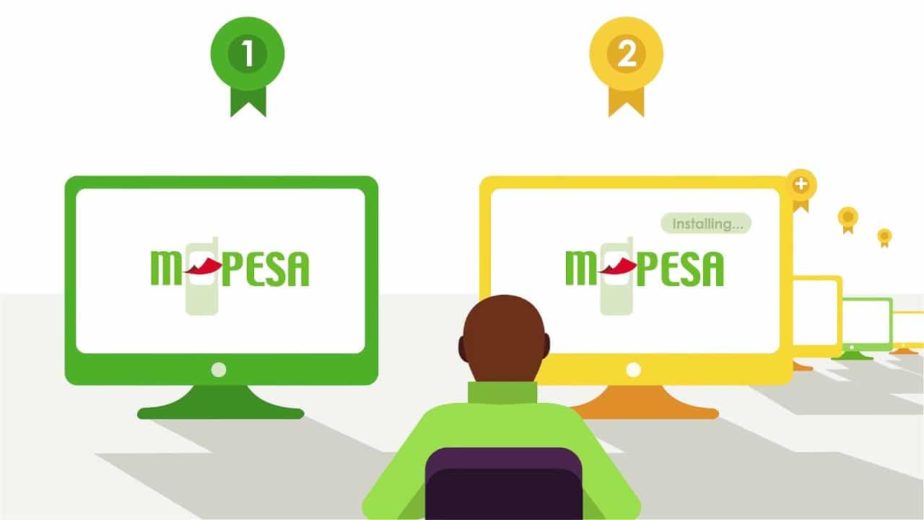How Fintech In Kenya Is Changing Gambling Industry? Dangers And Opportunities
In the past 10 years, Kenya’s financial situation has significantly changed. Innovators, tech-driven startups, mobile money, and contemporary infrastructure are all contributing elements to this expansion.
It has seen a lot of progress in fintech in Kenya and is now called the Silicon of the Savannah. Read our articles with daily news and in-depth analyses to learn more about Kenya’s economy.
Kenyan Economy
East Africa’s largest economy is Kenya. 83 percent of its 53.7 million residents now have access to formal financial services, up from 75 percent in 2016. A significant factor in this rise is mobile technology.
Because mobile money services were used so quickly, banks, venture capitalists, financial institutions, and governments quickly switched to digital financial services.
One of Africa’s largest and most advanced fintech ecosystems is found in Kenya. More than 354 fintech businesses operating across a range of industries call it home.
What Is A Fintech Company?
A fintech firm is a business that provides financial services through the use of technology. A recent sector called “financial technology,” or FinTech, uses technology to improve financial services.
FinTech businesses utilize cutting-edge technology to create brand-new goods and services or enhance the ones they already offer.
They can work in any part of the financial industry, such as banking, payments, lending, investing, and insurance. They can also be brand-new companies or ones that have been around for a while.
Many FinTech companies are young businesses that help people and businesses with their finances by using the Internet and mobile technologies.
While some FinTech businesses focus on creating goods and services for customers, others work to boost financial institutions’ productivity or develop new back-end infrastructure for the financial sector.
FinTech companies use technology to make the financial system more efficient, easy to use, and accessible.
The Most Significant Fintech Companies In Kenya
Chura
Users of Kenya’s different mobile networks can access services like mobile money and airtime through Chura, which is a web and SMS service.
AffricaConnect
A business-to-business technological system called ConnectAfrica connects several payment networks. Transfers between networks can be facilitated by hub members.
Popote Payments
You may make and manage payments using the web and mobile apps for Popote Payments with complete control, mobility, and up-to-date records. This is accomplished by using mobile money. Using a prepaid card is a convenient and secure alternative to cash or checks when making purchases.
M-Pesa
A firm that helps with payment is called Mpesa. It was founded in 2007 in Kenya, according to a former IBM employee.
M-Pesa enables users to deposit money, withdraw it, transfer it, pay for products and services (Lipa na M-Pesa), and access credit and savings accounts using their phones. Ethiopia, Afghanistan, Lesotho, Ghana, the Democratic Republic of the Congo, Kenya, Tanzania, and South Africa
What Benefits Might Fintech Provide To Gambling?
Safety Has Improved
Because every transaction made through a betting casino is done over a secure platform, fintech businesses provide an additional degree of security for gamblers.
Faster Business Transactions
Fintech systems speed up transactions, allowing players to nearly instantly get their winnings.
Lower The Price
Typically, fintech platforms charge less than conventional banking techniques. This implies that the player keeps a larger portion of their winnings.
Greater Usability
Because you can use fintech platforms anywhere you have an internet connection, they are typically simpler to use than traditional banking procedures.
Fintech And Gambling Trends In Kenya
There is a trend in favor of mobile-first solutions. This indicates that an increasing number of individuals are accessing banking services and playing games on their phones and tablets.
Efforts are being made to simplify things. This indicates that businesses are producing goods that are simpler to use and have fewer components. For instance, there are several financial applications available today that enable you to monitor your spending and determine where your money is going.
There’s a tendency to make things more distinctive. This indicates that companies are creating goods and services to meet the requirements of every customer. As an illustration, certain financial applications now offer guidance based on your spending habits.
And last, there is a drive toward collaboration. This indicates that companies are working together to create new goods and services.
For instance, a lot of banks now collaborate with fintech firms to provide their clients with additional options.
What Opportunities Can Fintech In Kenya Provide To The Gambling Industry?
Fintech presents a number of options for the gaming business, including the ability to make it simpler and more straightforward for players to make payments at a betting casino.
This explains why, according to PureNetWorths latest research, fintech companies across the world are investing in online gambling. However, there is a danger involved, which we shall discuss in the section after this one.
Fintech And Gambling Could Be A Dangerous Mix – Mpesa and Safaricom Case
M-Pesa and other fintech businesses in the nation have received plaudits for enabling low-income borrowers with little collateral, particularly those in far-flung rural areas, to get short-term loans and funding.
The mobile network provider Safaricom, which runs M-Pesa, and other small lenders have succeeded in reaching this hard-to-reach segment. They are easy to take advantage of because there aren’t many other ways for this market group to get loans.
Fuliza, an overdraft service for low-income consumers who have used up all of their digital credit, was introduced by Safaricom in January 2019. More than $60 million was borrowed within the first month it was promoted, with some bands paying as much as 60% of the total amount borrowed. The total amount of these loans increased to $800 million in the first half of 2019.
Another well-known business is M-Shwari, which offers microloans for as little as $1. This business disbursed loans totaling more than $2.3 billion in its first two years at annual interest rates that exceeded 100%.
The interest rates, which the corporation refers to as “facilitation fees,” are 7.5% of the loan amount and are payable in 30 days. With this name, the business can avoid regulations governing financial institutions.
Any amount that remains after 30 days is carried over to the following period with an additional 7.5% cost. Last but not least, the business’s Okoa Jahazi airtime credit platform charges a 10% fee on the credit borrowed and requires it to be paid back within five days.
These loans have yearly interest rates that may reach 500%, which is significantly higher than Kenya’s average rate for commercial loans, which is 12.8%.
With loans as small as $1 and full repayment expected between 5 and 30 days, there is little chance of actual value being created. Instead, the loans increase borrowers’ debt levels.
The Kenyan government, in its wisdom, decided against regulating Safaricom’s forays into finance, claiming that innovation had to be promoted. As a result, more fintech businesses, like Tala and Branch from California, have joined the M-Pesa platform. These companies charge a monthly interest rate of about 20%.
In Kenya, 50% of people who borrow money pay it back late, which gives dishonest lenders huge profits.
Another significant beneficiary of M-Pesa technology in Kenya is the gambling sector. Online betting businesses generated $2 billion in 2018, which is 100 times more than they did five years ago, according to the Kenyan government.
Kenyan youth report trying gambling around 76% of the time, and compared to other African nations, Kenyans bet more frequently.
This is so that betting and paying with mobile money can be done with ease, which increases their popularity. A study found that 96% of all Kenyan gamblers place their bets and play their games on their mobile devices.
The unregulated nature of fintech businesses has harmed Kenya’s economy. This is due to the fact that many lenders employ them in unlawful or unsuccessful endeavors, making it hard for them to repay the debts.
People Also Ask
How Many Fintech Are There In Kenya?
Kenya has one of the largest and most established fintech ecosystems in Africa. It is home to more than 354 fintech businesses in a wide range of industries, including gambling.
Who Owns Fintech Kenya?
Barry Ryan has been in business for more than 26 years and has started several successful companies, such as Data Integration Technologies Limited, Fintech, and KenSwitch.
Which Country Is Best In Fintech?
London will have more fintech businesses than any other city in the world as of 2022, with over 2,500. Because they are always coming up with new ways to meet changing customer needs, these businesses can quickly take advantage of new opportunities.
Conclusion
Although the growth of fintech in Kenya and the rest of sub-Saharan Africa cannot be prevented, it should be utilized to benefit individuals and address current issues. Fintech is now being used to take money from people with low incomes by giving them high-interest loans and letting them gamble.
This extraction script has been employed previously, leaving nations in abject poverty and with vacant lands. We applaud the growth of fintech in areas that traditional banking hasn’t paid much attention to, but we also need to be aware that this “progress” might make it harder to get rid of poverty by taking away the few resources that poor communities have built up.
African governments should study Kenya’s experience in order to achieve this and enhance their capacity to regulate in order to safeguard their most vulnerable populations. Central banks might monitor fin-tech platforms like M-Pesa more closely and make it more difficult for people to abuse them if they were treated the same as financial institutions.







